Demystifying the book biz
Some pointers if you want to publish a book
It never fails. Every time I meet someone and the conversation winds around to things we’d like to do in our lives, I learn that my new acquaintance has a secret dream to either write a book or open a restaurant. Since I’ve done both (yes, I’ve opened a restaurant), I can hardly begrudge such dreams. And yet succeeding at either is harder to accomplish than anyone imagines. (Most other truly hard things, like traveling to the moon or performing brain surgery, are restricted to only a few people, and supported by mammoth institutions, and monitored carefully, so success is actually plausible for the few that get to try.)
When it comes to restaurants, my attitude is “the more the merrier.” Not so with books. Fewer mediocre books in the market would be better for all of us. And I know the heartbreak that many wonderful writers experience when they publish perfectly good books that get lost in the tide. But I do believe in the life of the mind, and if too many books are discouraged we all will suffer. I want to stoke literary ambition, not stifle it.
So I sat down with some agents and fellow writers and came up with a list of things that anyone contemplating writing a book might want to know—or think about. I’ve focused mainly on “traditional publishing” here, but some of this advice also applies if you are self-publishing. (And if you’re interested in a hybrid model, I’ve got another essay for you.)
Let’s do some demystifying, replacing romanticism about writing books with helpful information.
Be in love with your idea. There are far too many books flooding the market, and far too many of them are inferior ones. Yet editors and readers remain hungry for work that breaks new ground, or offers a fresh voice on an old topic, or covers a subject that is unfailingly interesting. You will need abiding passion and a ton of commitment to get you through the years required to take a great book to the finish line, so make sure you are nuts about your subject.
Trust your instincts—and keep honing them. Know that if a subject fascinates you, it may fascinate others, too. Work on developing your instinct for story, and try your ideas out on friends, families, and foreigners to make sure it’s not a yawn.
Establish your platform. When a proposal comes before an editorial board, editors say they and others are often looking for a reason to say no. If an author doesn’t have a platform—i.e., a built-in audience that has been developed through a career of covering a certain subject, or a popular website, or a Twitter following—it may be hard to have faith that word of the book will get out. But there is a slightly subversive way to think about whether “platform” is everything: if there is a hole in the market—a dearth of books on an important subject—you may be able to fill it, and “platform” may be moot.
Consider the constraints of the marketplace. Editors and agents think simultaneously about the quality of the idea and the existence of a market for it. Be market-savvy: in developing book proposals, research and write about the competition. The existence of other successful books in a subject area shows that people will be willing to plop down $30 for a new one. As one agent explains, if she’s going to spend months with an author developing a worthy idea, she wants to make sure that there will be a payoff in eventual sales.
Yes, you will need an agent. Send a highly professional, crisp query to selected agents. If you know one of the agent’s authors personally, get a personal reference. Tailor each query letter to the specific agent; mention other work you admire that the agent represents. Keep in mind that an agent is running a business and looking for commercial promise. Agents will not be interested in helping you develop your ideas, or helping you select good ideas to develop, until you have already proved you can be a breadwinner for them. Good agents are overwhelmed with prospects (dozens of submissions a day), and they may not have time to answer a query unless it is irresistible.
Pursue the evergreen. Agents may urge authors to take an angle that is too narrow or focused (on, say, a particular event in 1915) and broadening it to encompass a larger sweep of history (a particular country in 1915). This allows the author to tell a more epic story and enlarges the market for the book.
Good news for accomplished writers: Experience counts, and great writing does, too. This is especially true for journalists, who will be both admired and challenged. Editors and agents appreciate working with journalists, because newshounds can deliver on deadline, and their areas of expertise are often diverse. But journalists need to unlearn the art of the short paragraph and the gift of quick study. Books offer a place to go deep, write rich, take the time to be thoughtful, and express complexities.
Experience matters in fiction, too: Agents and editors like to see that a short story writer or novelist has published in various venues. Many literary types start by publishing short stories in the myriad journals and reviews that exist, building up credibility and visibility. But a book? Oh boy. Big presses, small presses, indie presses, one-off presses—where to start? Big presses have more individual editors to choose from, but they may be overwhelmed by the sheer number of books in the stable and unable to give a writer attention right when it's needed. Small presses take more risks on voices and subject matter, but agents tend to work with just a few they know well and trust. Editors at indies may have more time to champion each title, but they have fewer bodies to do the work, and less money to spend on advances or publicity or marketing. Self-publishing? Yikes, how much do you love self-promotion? All fiction writers dream of finding a passionate advocate and of seeing their name in lights. Which way should you go? Try them all. And see what happens.
Forget that handsome advance, and understand royalties. Unfortunately, garnering $5 million is the province of celebrities or folks who are already bestsellers. Or newbies who are just blessed. Most first-time book authors are lucky to get $50,000. And at a small house or academic press, $5,000. (Please see below** for a dissenting view on this.) Any advance that is six figures or more is considered strong. Classically, an advance reflected a book’s earning potential in the first year, less costs to the publisher (for designing the cover, paying for paper, printing, binding, shipping—not to mention marketing and publicity). This isn’t always true anymore, but it’s a way to think realistically about money. And note: Advances are almost never paid out all at once, and not always even “in advance.” Yours might be parsed out in two, three, or even four installments. This upfront payment is an “advance against royalties,” so the next thing to decode are the protocols for the payments you receive after publication. Almost all traditional publishers issue royalty statements every six months. This means that authors are paid only twice a year and then only if their advances have earned out and royalties are owed them. (If you want to geek out more on money, see this post with everything you need to know about royalties, and the sad truth that authors earn no royalties whatsoever from the sales of used books, no matter how many times the used books are resold. (Just one part of the animus against Amazon.)
Get cozy with your publisher. Even once you’ve made it past the gatekeepers, your book is just one of hundreds—or even thousands—your publisher releases each year. The more you can separate yourself from all the other authors, the better chance you have of making an impact on your book publication. Plan a trip to New York, set up a meeting with your editors, and ask them to invite parties from other departments. Whether or not this request is honored—and if so, who exactly attends—the meeting will speak volumes about where you are in the pecking order of other authors. If it turns out to be just your editor, or a group of bright young “assistants,” you’re probably near the bottom of the list (along with most other first-time authors). The secret to being effective: Base your questions and comments on the realities of the marketplace (knowing that the publisher has worked up a detailed set of numbers on your book), and acknowledge the time constraints these players have in balancing work on your book among others.
Don’t expect a hasty turnaround. Be professional; deliver your manuscript on time. But realize that the time from a book’s acquisition to the day it hits shelves is anywhere from one to two years. There are contracts to sign, drafts to write, revisions to make, edits to graciously accept, more revisions, copy edits, legal reviews, publicity meetings and all sorts of other delays.
Be proactive, but be thoughtful. Awareness of the production schedule for your book is important; knowing when each part of the design and layout process is coming helps you determine when it’s appropriate to ask any questions you might have—and to gently offer your own ideas while there’s still time for them to be taken into consideration.
The difference between a writer and an author is a sophisticated understanding of marketing. This includes social media. Your idea and your writing and your enthusiasm are critically important. But marketing must be an integral part of your writing career; it begins long before you land a book deal and continues for as long as you call yourself a writer. Remember: Publishing is a business and your book is a product. “Purpose-driven” houses do exist, but once you sign that contract, expect your manuscript to be packaged, priced, and sold to make money.
Writing well is the best revenge. You can spend an inordinate amount of time on marketing and selling and social media, but realize that such things can be a diversion, a kind of avoidance. Sitting down and doing the hard work of creating something lasting should always trump everything else. Being a social media maven helps, having a website is de rigueur, but writing well is the best revenge.
The gods favor the persistent.
**One agent commented on a very recent shift: "I have to tell you, trade publishing is trending towards higher advances and fewer acquisitions. Often debuts are the hottest purchases—there is no sales track record to discourage us and wishful thinking flourishes."
—Constance Hale
{Writer Lydia Sviatoslavsky helped compile these notes, coming from interviews with various editors, agents, and writers as well as an article in  Writer's Digest.}
Writer's Digest.}
| |
Share This:




